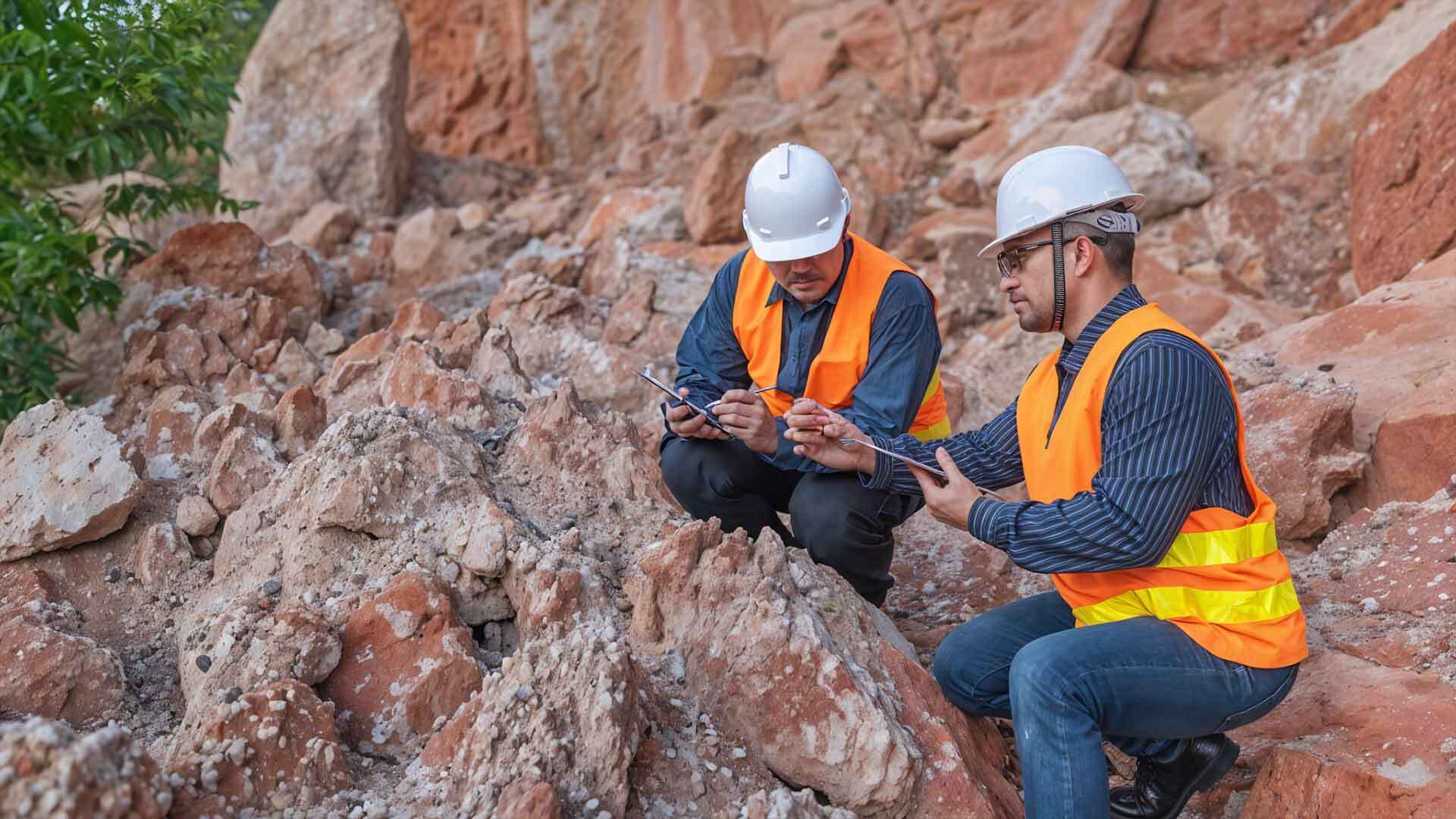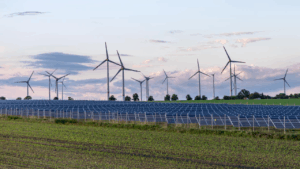If you aim to switch careers or consider going to school to work in the energy sector, you should consider becoming a geologist.
They play a crucial role in the energy sector and are present in traditional and renewable energy. You can help find and secure mineral deposits and their safe extraction.
As a geologist, you also play a key role as part of those looking to improve environmental protection.
Becoming a geologist can take a few different paths, and as it’s a growing field, it can become an exciting and lucrative career.
The article will walk you through what geologists do, the skills you need, and how to start your journey in this exciting field.
What Do Geologists Do? Exploring Their Career
Geologists seek to understand how the Earth works, examining how the Earth’s geological processes, environmental conditions, and natural disasters work and affect us.
Investigating and studying rocks, minerals, and natural processes can help with energy, mining, and environmental science.
They also use their knowledge of the Earth’s natural resources to collaborate with other scientists, stakeholders, and engineers to solve problems in the energy sector.
As a geologist, you would examine rocks and substrates from the Earth’s surface for various reasons, including exploring minerals and hydrocarbons like oil and gas.
As a geologist, you collect and interpret data to build engineering foundations, improve production, and protect groundwater during extraction.
What Kind of Geologist Could You Be?
As a geologist in the energy sector, you will most likely specialize in a particular area of geology, and the specialization will lend itself to the title you take on.
- Petroleum Geologist: The most common specialization for the traditional energy sector, studying oil and gas deposits under the ocean and land. You would advise on where the best drilling areas may be and make recommendations of where to drill next.
- Renewable Energy Geologist: A geologist or geoscientist who specializes in the processes of renewable energy and how solar, wind, geothermal, and hydro energy is distributed. They assist with devising new environmental ways to displace fossil fuels.
- Economic Geologist: These geologists study how valuable materials from the Earth form. These minerals are profitable, including oil and natural gas, for extraction to be used as energy and for making plastic.
- Geotechnical Engineer: In this role, you would use your knowledge of geology to assess the properties of rocks and soil and help solve problems related to establishing and repairing energy infrastructure.
- Hydrogeologist: A geologist who studies the engineering behind how groundwater can be used to produce energy by harnessing it as it moves through the earth. As a hydrogeologist, you would also help to test groundwater for contaminants.
- Environmental Geologist: Focusing on human interaction with the environment, these geologists attempt to solve environmental problems like erosion and flooding or natural disasters like earthquakes, pollution, and natural hazards.
This isn’t an exhaustive list, and some geologists will work in the energy sector in an unrelated specialization.
What Skills Do Geologists Need?
Regardless of their specialization, geologists can benefit from a balance of technical and soft skills to ensure they can do their job well.
Technical Skills
Geologists use various software, custom applications, and devices that graduates need to learn to use. They also must have specific technical skills:
- Mapping skills
- Data collection
- Database creation and management
- Sample Collection
- Technical Reports
- Technical Support
- AutoCAD
- Data interpretation
Soft Skills
Do you work well with others? Soft skills are very important because working well with others ensures that each workplace communicates effectively and clearly.
- Strong communication skills
- Analytical thinking
- Love of science and problem-solving
- An interest in the outdoors and fieldwork
- Teamwork
- Leadership
- Empathy and respect
New geologists can demonstrate that they have made an effort to hone their soft skills through volunteer work and joining societies.
Possible Career Paths for a Geologist
If you pursue a career as a geologist, there are plenty of industries you can work in:
- Government and Research: Performing geological surveys, climate change studies, and policy development.
- Environmental Consulting: Regulating and managing groundwater, land use, and pollution control.
- Mining and Minerals: Assists in finding and assessing valuable mineral deposits like oil and gas.
- Renewable energy sector: Specializing in carbon capture and storage, geothermal energy, and sustainability initiatives.
- Oil and Gas Industry: Geologists work with drilling companies to explore and extract fossil fuels. They are also involved in working with utilities to transition into more environmentally friendly methods.
A Day in the Life of an Energy Geologist
Every specialization will require certain skill sets and perform important tasks, but at the center of it, most geologists have common duties they perform every day if they work in the energy industry.
Adventure
Geologists travel to many different locations for their job examining rock structures and geological structures. By analyzing these sites, they can create geological maps that show where minerals can be found in specific areas.
When energy sources are found in an area, geologists evaluate the structures and subsurface conditions for their suitability and stability for oil and gas extraction. They must assess and confirm the site’s safety before they install any drilling equipment.
Data and Report Writing
Geologists collect information and log samples in the field to analyze them further when they return to their lab.
These samples include pieces of rock, mud samples, extractions from the ground, and data related to the strengths and weaknesses of the rock and how it shifts.
Lab and Computer Work
You will spend your day examining and testing samples that have been collected out in the field back in your lab using specialized equipment.
The scientific equipment allows geologists to learn more about the mineral composition and then advise the company or government employing you where the next excavation and mining should occur.
All the information you find from examining and analyzing the samples will be placed into databases to organize the research and create models of oil fields and mineral deposits. The models and associated data can allow others to present the findings if necessary.
First Steps to Becoming a Geologist
There are a few different pathways to becoming a geologist because geology is such a broad field to work in. Each aspect of understanding the earth from its history, resources, and processes can require a unique skill set and appeal to several different interests.
Education
Most geologists are hired with just a Bachelor’s level of education, usually in science, although some go on to pursue a Master’s or Doctorate degree.
According to surveys undertaken by American universities, geology is the common major of working geologists, followed by geological engineering and environmental science.
Archaeology and business majors aid professionals who work in more specialized fields of extraction, like removing natural resources from archaeological sites.
Networking with Industry Professionals
Getting established as a geologist as a new graduate or as someone switching careers can be difficult but meeting those already established in the industry can leverage your career.
Try networking by joining professional societies like the Geological Society of America (GSA) and, if it is relevant to you, the American Association of Petroleum Geologists (AAPG).
During the year, societies will regularly hold meetings to discuss new developments in the field. As a member of one of these societies, you’ll have access to the agendas and dates of these professional gatherings you can attend, such as:
- Geology seminars
- Workshops
- Conferences
- Geology forums
Networking is an important part of any career and can be a great starting point for someone just changing careers or a new graduate.
Consider Certifications
Seminars, workshops, and conferences provide opportunities to continue learning, and continuous learning is important. Geology is a constantly evolving field with new research and technological advancements every day.
Possible certifications you can work towards include:
- Geologist-in-Training
- CAD specialization
- Occupational Safety and Health’s Hazardous Waste Operations and Emergency Response (HAZWOPER)
- First Aid
Working towards these certifications is also beneficial when you’re applying for a job. Getting additional certification shows initiative and places you at the top of the pack.
Hands-on Experience
While you may get some experience during your education, it can be beneficial to look for ways to demonstrate your skills in the real world after graduation by volunteering. You can get more involved and develop meaningful mentorships.
These volunteering opportunities are often posted in society newsletters and include:
- Geological surveys
- Local science fairs
- Museums
- Archaeological digs
These options increase your chances of making a name for yourself and being seen as a credible geologist.
Job Outlook and Salary Expectations
Environmental consciousness and climate change are rising, and the renewable energy sectors have increased their demand for geologists in response. This career has risen steadily in North America and Europe for a few years.
Salary Expectations
Salaries vary by industry, experience, and location, but you can expect to earn roughly $50,000 to $80,000 per year as an entry-level geologist. If you have advanced degrees and certifications, this can increase your earning potential even more.
However, oil and gas geologists earn higher salaries than other geologists, especially when placed in remote and dangerous locations.
Final Thoughts: Should You Become a Geologist?
Becoming a geologist in the energy industry can be a rewarding career move. A degree in geology is customizable, with many after-graduate specializations that enable you to choose whether to pursue a job in traditional fossil fuels or spend time in the renewable energy sector.
A job learning about the Earth and its importance to energy distribution can be in your future! If geology is not for you, there are plenty of other options.

















